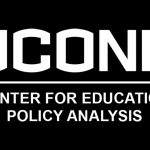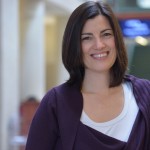Editor’s Note: Jeremy B. Landa, Neag School doctoral student in the Learning, Leadership, and Education Policy program, prepared the following issue brief — in affiliation with the Center for Education Policy Analysis (CEPA) — exploring the distribution of Black or Hispanic educators across Connecticut’s school districts.
In partnership with a consortium that includes six other universities across the nation, the Neag School’s special education doctoral program and Center for Behavioral Education and Research (CBER) will once again be part of a federal grant designated to support a total of nearly 30 future scholars in the field of special education.
I often worry that our focus on domestic students and their needs is causing an entire, important demographic to feel forgotten and unwanted.
The Neag School community honored more than 150 Neag School student scholarship recipients last month at the School’s Annual Scholarship Awards Celebration, many of whom attended the celebratory luncheon in Rome Commons Ballroom with their family and friends.
“As a graduate student in education who is placed in an internship in East Hartford, I am preparing for a career teaching such things as reading and math,” says Isaballa Horan. “But teaching goes both ways, and in many instances, my students have taught me far more than I have taught them.”
Congratulations to our Neag School alumni, faculty, staff, and students on their continued accomplishments inside and outside the classroom. If you have an accolade to share, we want to hear from you! Please send any news items and story ideas to neag-communications@uconn.edu.
This past summer I had the amazing opportunity to travel abroad to Costa Rica, where I spent six weeks living with a host family and volunteering at a local PreK-12dual immersionschool, La Paz Community School.
As I have navigated my way through UConn being both a student and an athlete, one of the biggest lessons I have learned on the field and in the classroom is to take risks and always go after what I want.
“Despite the intent and plain language of the racial imbalance law, charter schools, which are now among the most racially isolated schools in the state, are specifically excluded from SDE’s report,” writes Wendy Lecker and Robert Cotto. “This is particularly troubling since Connecticut law defines charter schools as public schools subject to all federal and state laws to which public schools are subject. Charter schools can be granted a specific exemption from some laws but only if they request that in their application. If the legislature intended to exempt charters from the racial imbalance law, it could have amended the law and done so explicitly.”
Beyond her advocacy efforts, Lynne Henwood’s body of work includes designing a teaching unit, based on the Autonomous Learner Model, empowering fifth grade students to utilize 21st century skills such as choice, collaboration, creativity, critical thinking, and technology. She was honored in 2018 as Teacher of the Year for the New Jersey Association of Gifted Children, where she now serves as president.





